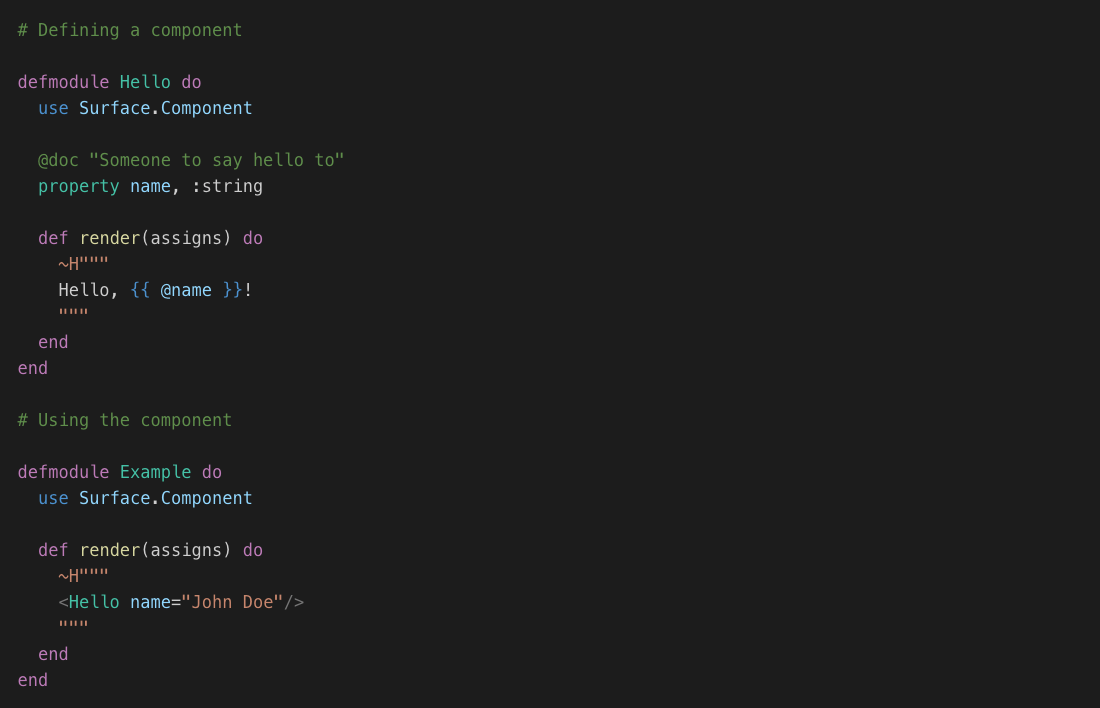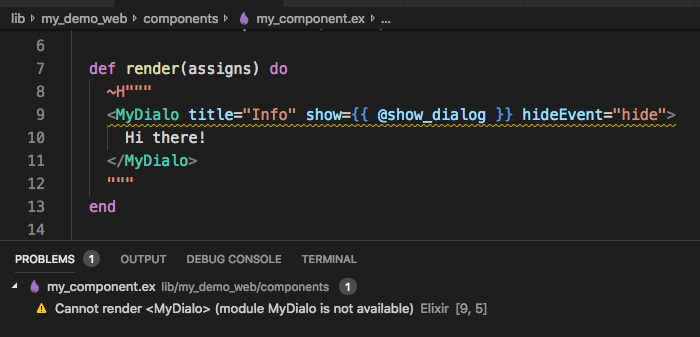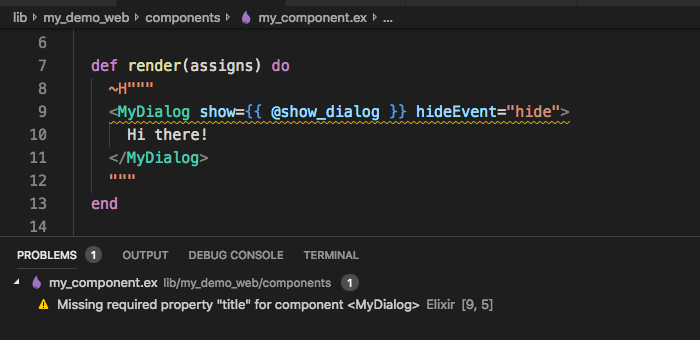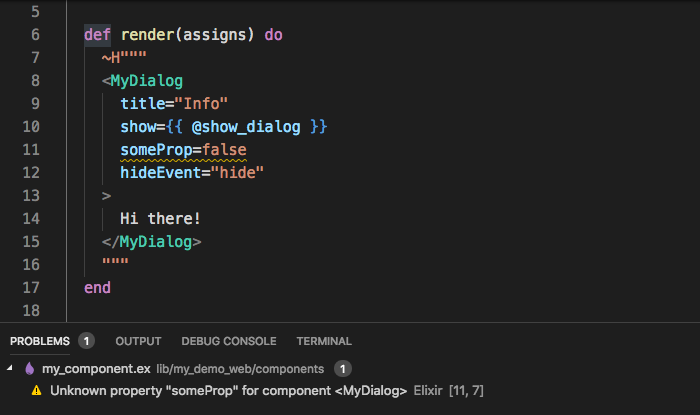Surface is a server-side rendering component library that allows developers to build rich interactive user-interfaces, writing minimal custom Javascript.
Built on top of Phoenix LiveView and its new LiveComponent, Surface leverages the amazing Phoenix Framework to provide a fast and productive solution to build modern web applications.
Full documentation and live examples can be found at surface-demo.msaraiva.io.
A VS Code extension that adds support for syntax highlighting is available at marketplace.visualstudio.com.
At compile time, Surface translates components defined in an extended HTML-like syntax into regular Phoenix templates. It also translates standard HTML nodes allowing us to extend their behaviour adding new features like syntactic sugar on attributes definition, directives, static validation and more.
In order to have your code translated, you need to use the ~H sigil when defining your templates.
-
An HTML-centric templating language with built-in directives (
:for,:if, ...) and syntactic sugar for attributes (inspired by Vue.js). -
Components as modules - they can be stateless, stateful, renderless or compile-time.
-
Declarative properties - explicitly declare the inputs (properties and events) of each component.
-
Slots - placeholders declared by a component that you can fill up with custom content.
-
Contexts - allows a parent component to share data with its children without passing them as properties..
-
Compile-time checking of components and their properties.
-
Integration with editor/tools for warnings/errors, syntax highlighting, jump-to-definition, auto-completion (soon!) and more.
Note: Some of the features are still experimental and subject to change.
Requirements:
- Install Phoenix (https://hexdocs.pm/phoenix/installation.html).
- Install Phoenix LiveView (https://hexdocs.pm/phoenix_live_view/installation.html)
- Although LiveView supports Elixir 1.7, which is compatible with Erlang/OTP 19–22, LiveView requires Erlang/OTP 21+ and, thus, so does Surface.
Then add surface to the list of dependencies in mix.exs:
def deps do
[
{:surface, "~> 0.1.0-alpha.2"}
]
endIn order to have ~H available for any Phoenix view, add the following import to your web
file in lib/my_app_web.ex:
# lib/my_app_web.ex
...
def view do
quote do
...
import Surface
end
endYou will also need to call Surface.init/1 in the mount function:
defmodule PageLive do
use Phoenix.LiveView
import Surface
def mount(socket) do
socket = Surface.init(socket)
...
{:ok, socket}
end
def render(assigns) do
~H"\""
...
"\""
end
enddefmodule NavComponent do
use Phoenix.LiveComponent
import Surface
def mount(socket) do
socket = Surface.init(socket)
...
{:ok, socket}
end
def render(assigns) do
~H"\""
...
"\""
end
endFor further information regarding installation, including how to quickly get started using a boilerplate, please visit the Getting Started guide.
Since components are ordinary Elixir modules, some static checking is already provided by the compiler. Additionally, we added a few extra warnings to improve user experience. Here are some examples:
Some experimental work on tooling around the library has been done. Here's a few of them:
- Syntax highlighting
- Jump to definition of modules (components)
- Jump to definition of properties
- Auto-complete/suggestions for properties (WIP)
- Show documentation on hover for components
- Show documentation on hover for properties
Having a standard way of defining components with typed properties allows us to
enhance tools that introspect information from modules. One already discussed was
the possibility to have ex_doc query that information to provide standard
documentation for properties, events, slots, etc.
Copyright (c) 2020, Marlus Saraiva.
Surface source code is licensed under the MIT License.




